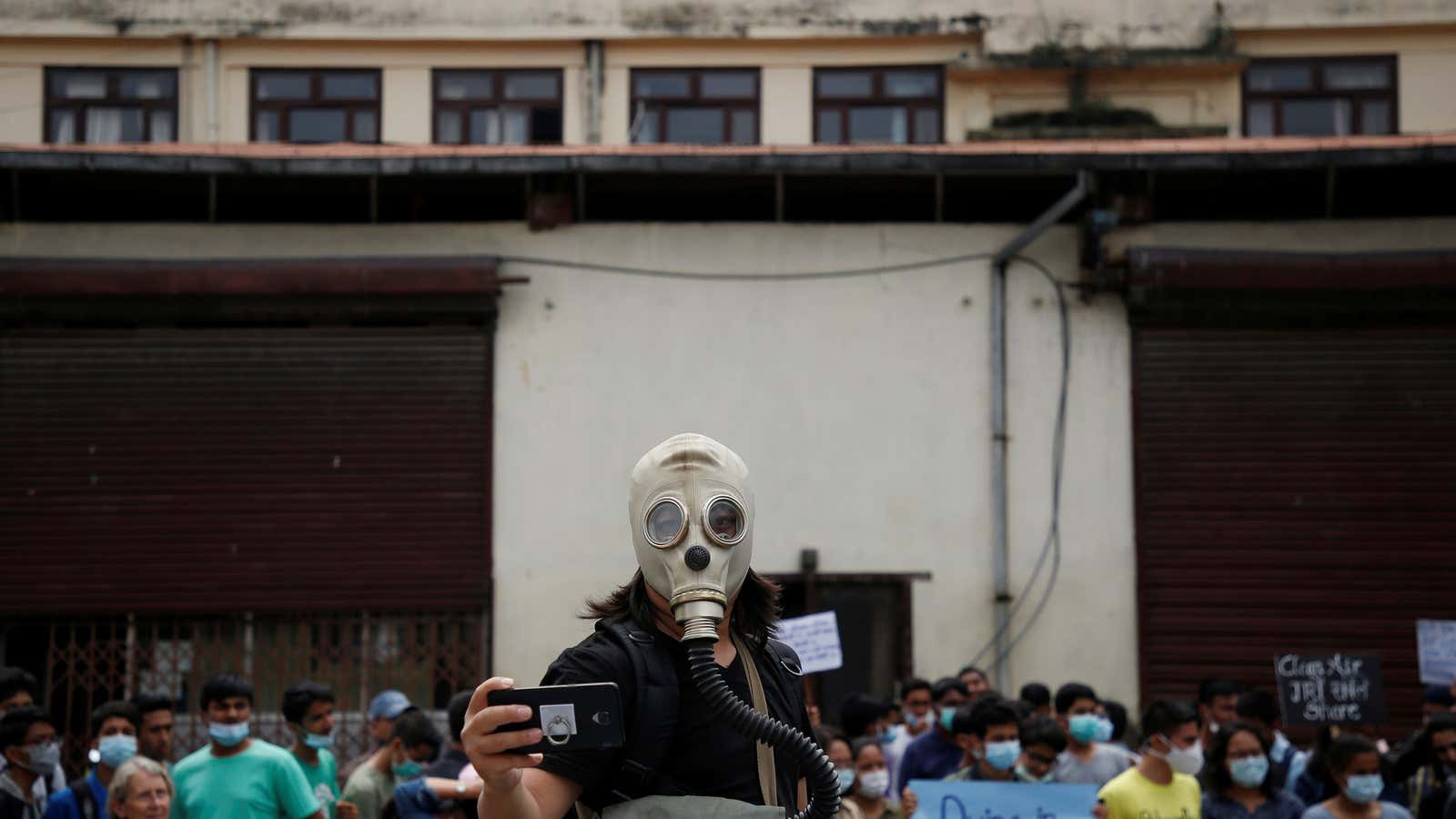When it comes to the air you breathe, your location matters. While no city, state, or country is completely free of air pollution, some have better air quality than others. The quality of the air outside affects that inside, which is where most people spend 90% of their time.
The best way scientists know to gauge how harmful air can be to the people breathing it is by assessing the concentration of fine particulate matter—particles 2.5 microns in diameter or smaller that, once they enter the lungs, can trigger immune reactions that can damage tissues over time.
Long-term exposure to high concentrations of these particles has been linked to a number of negative health outcomes, including increased rates of lung cancer, asthma, premature birth, and death from heart and respiratory diseases.
Here are the concentrations of fine particular matter by country in 2016, according to the World Health Organization (WHO).
Curious which countries ranked the highest? Here’s a searchable table with that same data.
